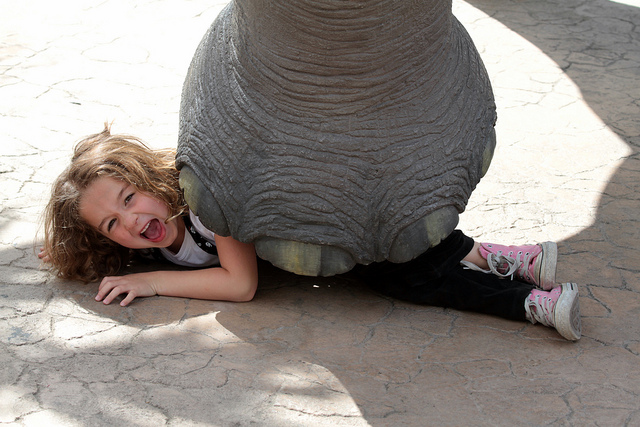Growing up, I used to respond to elementary school classmates who said rude or cruel things by chanting “Sticks and stones may break my bones, but words will never hurt me!”
Even though I’ve become an adult who can typically slough off hurtful words—and thankfully I don’t get many slung my way anymore—I know that words and how they’re spoken actually can have a deep and enduring impact on how we feel about ourselves and how we think about life in general.
This is part of the reason I’m so passionate about mindful speech as a parent and parent coach. I know that our communication, both verbal and nonverbal, can either uplift or squash, inspire or demoralize, comfort or agitate. Thus, my husband and I work to be particularly thoughtful in how we talk with our daughter.
Even the best-intentioned parents slip up.
One day, it came as a huge shock when I realized that, despite my conscious intention, I was communicating something to my daughter that I absolutely didn’t want to: shame. I was sending her the message that she wasn’t loveable exactly as she was. I was mortified!
I didn’t shame her blatantly—most parents don’t. But I did make her wrong for her behavior based on my internal dialogue that “she should know better.” She’d been playing with two of our cats when I first caught myself shaming her. She was five and a generally gentle and loving playmate with our feline family members. On this afternoon, however, she seemed completely oblivious to their protesting mews as she put pillows on them so she could have a comfy place to rest her head.
After a few reminders to be gentle or “Stop what you’re doing. Tink’s saying he’s very unhappy,” I was feeling frustrated. While it’s true that she was old enough to change her behavior at will, I also know that such self-control still evades young children. Finally, glimpsing her in the process of giving our tabby cat a bear hug, I let my shame slip out: “Gracelyn!” I said in a raised voice with the shame of “how dare you do that” oozing from those two syllables.
Why we shame our children:
According to shame researcher Brené Brown, PhD, “We live in a world where most people still subscribe to the belief that shame is a good tool for keeping people in line. Not only is this wrong, but it’s dangerous. Shame is highly correlated with addiction, violence, aggression, depression, eating disorders, and bullying. Researchers don’t find shame correlated with positive outcomes at all—there are no data to support that shame is a helpful compass for good behavior.”
When I had previously written about this topic, I received mostly positive responses (thank goodness we’re waking up!). But there were also commentors who echoed the belief that Brené Brown highlighted. These people thought that in order for their children to change, they first needed to feel ashamed of themselves.
From what I’ve seen, I think that shaming happens predominantly for two reasons:
We do to our children what was done to us. Because we haven’t healed our own places of brokenness, we shame our children in the same ways that we were shamed during our own childhood. Without deliberate intent and ongoing awareness it’s easy to slip into unconsciously-fueled choices in how we parent.
We “hurt back” when we feel powerless and frustrated by certain behaviors. Robin Grille, an Australian psychologist and author of Parenting for a Peaceful World writes that “shaming acts as a pressure valve to relieve parental frustration. Shaming is an anger release for the parent.”
So even though many of us don’t literally say “You should be ashamed of yourself,” we are saying and doing things that could lead our children to infer this message just the same. The bottom line with all shaming—whether we intended to shame or accidentally did so—is that our children get the message: you are unlovable, you are not okay exactly as you are. While they may change their “bad” behavior, their self-worth is unnecessarily sacrificed in the process.
We can stop shaming our children.
In my video, I share examples of the ways we’re sending these shaming messages to our children. I made the video not to judge anyone (remember, I’ve done these things too). I created it in hopes of awakening others to unconscious habits that may be getting in their way of being the parents they truly want to be.
From my perspective, one of the top responsibilities of parents everywhere is to safeguard our children’s sense of self-worth and self-love—the knowledge they were born with, but that events in life sometimes make it easy for them to question. When we communicate in a way that indicates “you’re not okay as you are,” we erode our children’s worth. Furthermore, our judgmental voice will become ingrained as their own internal critic.
Because I want my daughter to know without a doubt that she is lovable and worthy exactly as she is, I’m mindful of the messages I send her.
~
Author: Shonnie Lavender
Image: peasap/Flickr
Editor: Catherine Monkman











Read 0 comments and reply